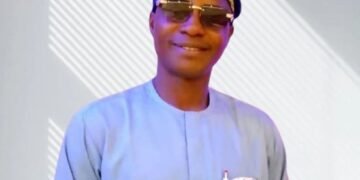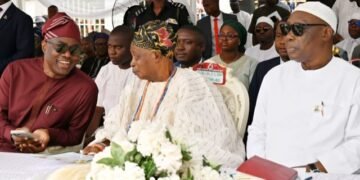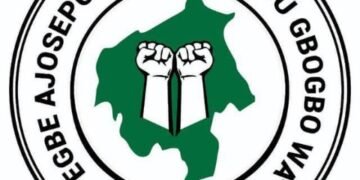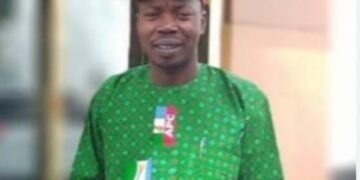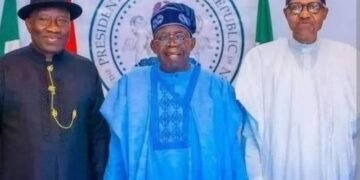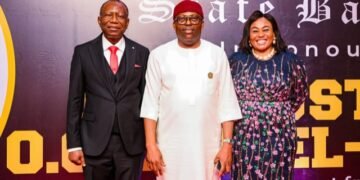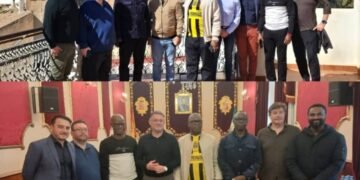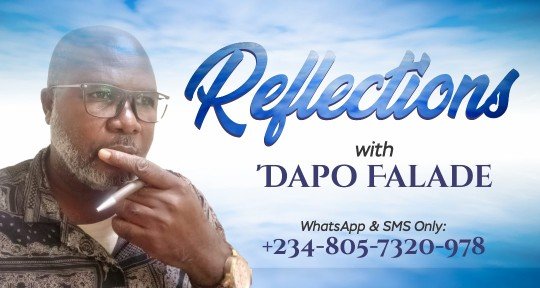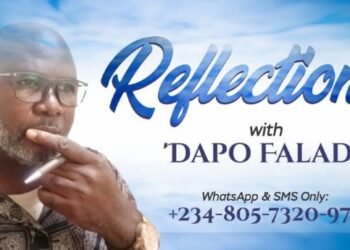Nigerians are being steadily forced into a form of slavery in their homeland through the democratisation and weaponisation of poverty. Today, the electorate—cutting across age, gender, and religious lines—openly sell their votes, trading their democratic rights for a plate of porridge.
The recently-concluded Ondo State governorship election serves as a grim reflection of this trend. Lucky Orimisan Aiyedatiwa emerged victorious, set to begin his first term after completing the late Governor Oluwarotimi Akeredolu’s tenure. Despite allegations of malpractice, ballot box snatching, and open vote-buying, his swearing-in appears inevitable.
President Bola Tinubu, in his typical response to electoral grievances, advised aggrieved candidates in the election to seek redress in court. Yet, beneath the surface lies a deeper, systemic problem threatening the foundation of Nigeria’s democracy.
Takeaways From The Ondo Election
The Ondo governorship election was marred by reports of voters being openly induced with money. What was once done discreetly has become blatant, with vote-buying across party lines.
In 1999, during Nigeria’s nascent democratic era, elections were marked by physical intimidation and ballot box snatching. Financial inducements existed but lacked today’s brazenness. Twenty-five years later, vote-buying has replaced physical violence as the dominant tool for electoral manipulation. This evolution is underpinned by the systematic impoverishment of the electorate.
Political middlemen now collect millions in cash from candidates, distributing these funds to intermediaries who target vulnerable voters with meagre sums. The result? A population compelled to sell their votes for survival.
An elderly woman in Igbotako encapsulated this poverty reality during the Ondo election. In a television interview, she innocently admitted to voting after her palm was greased.
“We have voted. Voting is going on peacefully; there is no wahala; no fight. We voted and we collected money. All of us; we collected money; money for our votes…,” the woman said in Yoruba Language before being stopped from divulging further details.
A colleague who monitored the election lamented the degrading state of affairs: “I give up on agitating for good governance. Watching the voters, including retired school principals, sell their votes for ₦3,000 or ₦10,000 was heart-wrenching. It is unbelievable that people suffering from bad governance would willingly perpetuate it for peanuts.”
How Did We Get Here?
The answer lies in a deliberate political strategy to entrench poverty. Political parties across the spectrum engage in vote-buying, using poverty as a weapon to ensure electoral victories at all costs.
Depending on the size of the pocket of the spenders, the democratic space has been taken over by the democratisation and weaponisation of poverty for a desired end- winning election by all means and at all cost.
This phenomenon, infamously dubbed “stomach infrastructure” by former Ekiti State Governor Ayo Fayose, was elevated during the 2018 and 2022 governorship elections in the state. Voters were openly bribed with amounts ranging from ₦1,000 to ₦10,000, reinforcing a vicious cycle of poverty and poor governance.
But why do Nigerians sell their votes, knowing the consequences? Are they inherently corrupt, or have they been forced into this predicament by visionless leadership?
The answer is complex. While some blame voters for enabling corruption, others argue that poverty leaves them with little choice. How can a hungry widow with starving children refuse a bag of rice and ₦5,000? How can a desperate father seeking funds for his child’s medical needs turn down such offers?
Weaponisation Of Poverty By The Leadership
The blame for this predicament lies squarely at the feet of Nigeria’s leadership. By implementing anti-progressive policies and prioritising short-term poverty alleviation over sustainable development, they have institutionalised poverty as a political tool.
What is going on in contemporary Nigeria is a gradual but steady weaponisation and democratisation of poverty; empowerment and poverty alleviation programmes that placed premium on the distribution of grains of rice, beans, loaves of bread, sachet tomatoes, noodles and spaghetti.
Rather than focusing on job creation, industrialisation, or infrastructure development, politicians distribute grains, noodles, and cash to gain votes. President Bola Tinubu’s administration has been criticised for perpetuating this cycle, earning him nicknames like “President Rice Kimono” for his rice distribution schemes.
Former President Olusegun Obasanjo, during a recent keynote address at Yale University, New Haven, Connecticut, USA, on 15 November, 2024, absolved the masses of blame in the malfeasance called voting buying. He condemned the weaponisation and democratisation of poverty. Describing Nigeria as a state capture and quoting Chinua Achebe, Obasanjo stated: “The trouble with Nigeria is simply and squarely a failure of leadership… The Nigerian problem is the unwillingness or inability of its leaders to rise to the responsibility, to the challenge of personal example which are the hallmarks of true leadership.”
Nigerians: Victims or Accomplices?
Some argue that Nigerians should share the blame, suggesting that a people get the leaders they deserve. But this perspective ignores the harsh realities of poverty. Expecting the poor to reject electoral inducements without addressing their dire circumstances is unrealistic. As the Yorùbá proverb says, “Ẹni tí èbí ńpà kì í gbọ ìwàásù” (A hungry person cannot heed a sermon).
The electorate’s complicity is, therefore, less about greed and more about survival in a country where opportunities are scarce, and poverty is weaponized.
The Way Forward
Nigeria’s path to redemption lies in visionary leadership, committed to dismantling systemic poverty and fostering sustainable development. Leaders like Singapore’s Lee Kuan Yew and Indonesia’s Suharto transformed their nations by prioritising industrialisation, infrastructure and good governance over personal enrichment. Until Nigeria produces leaders of similar caliber, the cycle of vote-buying, poverty and underdevelopment will persist.
Until then, Nigeria will continue to be a country where the weaponisation and democratisation of poverty will continue to be our way of life; vote buying will remain the rule rather than an exemption. It will continue to remain a country with stunted growth and under-development, due to the deficient characters of the leaders elected into public offices.
After eight years of hellish living on earth here in Nigeria, President Tinubu rode to power on 29 May, 2023 on the crest of a Renewed Hope Agenda. During the campaigns, he confidently told Nigerians “Emilokan”. The former helmsman of Lagos State assuredly and re-assuredly told us “Elofokanbale” Some 18 months into the life of his administration, it is now a case of “Enikanlomon” as “ara everybody ti balẹ” Hope and assurance have taken a flight.
The Renewed Hope Agenda, which inspired optimism during his campaign, now seems like a distant promise. Instead of hope, despair reigns supreme, leaving Nigerians to ask: How long must they wait for the promise of a better nation?
As we ponder this question, the late Bob Marley’s lyrics resonate deeply: “Until the philosophy which holds one race superior and another inferior is finally and permanently discredited and abandoned, everywhere is war…”

